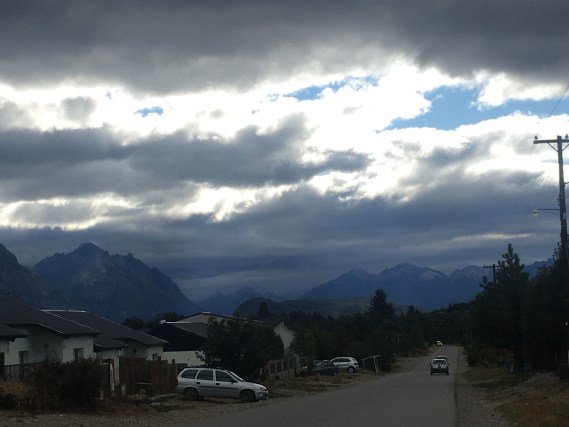I LOVE the snow. But I grew up in south Texas where snow is something from the movies but not something that actually happens in real life. Except that ONE TIME when I was two years old. But I wouldn’t see snow again until I moved to Nashville, TN for college. (I did not make it to classes that day it snowed because I was busy studying the physics of sledding.) Then I got to know REAL snow in DC where I was lucky enough to live through two snowmageddons of more than a foot of snow!
But never in my life would I have dreamed that I would live through a snowmageddon (also known as “snowpocalypse”) in my childhood home in south Texas. As fate would have it, I was visiting my parents when the 2021 Texas snowpocalypse hit.
To wake up and see those snowflakes falling…and falling…and continue falling throughout the day, accumulating multiple inches of white fluff across the landscape of my childhood home (where we often wore shorts at Christmas and New Years celebrations), was surreal to say the least. As if fulfilling a childhood dream, I played in the snow, made a snow angel, a snow person, and a snow caterpillar.

It was all fun and games until the electricity went out. And stayed out. Who am I kidding – for me it was still fun and games because I love a good primitive living challenge. We didn’t have hot water at first, so I heated water over the stove and took a bucket bath. (Later, when we got spurts of 5-minutes of electricity, we used a blow dryer to warm the frozen pipes coming from the hot water heater until we had hot water again.)
We were lucky; we still had running water AND we had a gas stove that kept the house from getting too cold. Our neighbor’s house got down to 50°F for multiple days.
Running in the snow on a city trail I saw three different groups of people gathering wood to start a fire outside their house or apartment to stay warm.
An elderly neighbor that had no water or electricity tried to book a hotel, but hotels (that had been struggling because of the pandemic’s hit on tourism) were suddenly booked full, as locals searched for shelter for a few days.
My friend and her family collected snow and icicles to boil for water because she didn’t have running water for multiple days, like many of my friends (and millions of people across Texas).

A few days later we got our power back. But another friend who had had power the whole time, suddenly lost power. Her sister and niece and nephew had been crowded into her small apartment after they had lost power, but suddenly my friend was migrating to their house.
After three days without consistent power and nearly a week of icy roads, the temperatures rose back up above freezing, and with the sun shining brightly, I found myself wearing a t-shirt. The roads cleared up, and exactly one week after the first snowflake had fallen, my snow friend was long gone, and there was no sign on the ground that the Texas snowmageddon-snowpocalypse had ever happened. It was just another warm, sunny, “winter” day in south Texas.
Except for the people like my aunt, whose pipes had frozen, then cracked, and who now had water damage in their ceilings and walls. For a while she was collecting water from her neighbors. After an emergency fix, she was able to collect water from her outdoor water hose to wash dishes and flush the toilet. Two weeks later, she is still waiting in line for the contractors to fix the damage to her house – which is not so surprising, considering that billions of dollars of property damage resulted from frozen pipes and lost power across Texas.
And then there are the loved ones of the more than 50 people who died.1
But there is a silver lining. A few people have profited greatly because of the skyrocketing gas and power prices during the snowpocalypse. While some energy and utility companies and traders lost millions of dollars due to excessive energy prices, others made millions.2
Those profits are now going to help those who suffered, and to prevent something like this from happening again.
Just kidding.
That’s what SHOULD happen. That’s even what COULD happen. But that is not what IS happening
Instead, we are witnessing a grand market failure and an even bigger failure in governance.
The market failure
In an ideal market, you can pay to receive a high quality and affordable product or service and the service provider makes a profit. If the provider fails to provide what was agreed upon, you receive a discount or some kind of compensation.
My mom pays her utility bills on time every month, and she is promised reliable power and water. In February, she did not have power for more than 50 hours, and yet, she will not be receiving any kind of discount or compensation for the lack of service. Instead, her utility bills will COST MORE over the next decade, and she, (along with millions of other Texan customers) will be paying off a debt accumulated by many utilities during the storm, due to the excessive surge in gas and electricity prices.
Let that sink in for a minute. The customers who suffered the consequences of the power failure will be paying for it, rather than receiving compensation for the lack of service.
In an ideal market situation, you could require the provider to compensate you for not holding up their end of the bargain. And, you could also change to a more reliable provider. But my mom (and the millions of Texan power consumers) do not have that option here – a clear indication that the market is not working as intended.
Fun Fact: Texas law actually prohibits charging excessive prices during an emergency, (and the governor had called a state of emergency before the storm.) But that did not stop Texas regulators from allowing electricity prices to rise nearly 3,500% their normal, while gas prices rose 6,000% to 16,000%! (I can’t even wrap my head around that number.)2b
And yet, the most powerful regulators and politicians in Texas are defending the market as is, resisting making any corrections or changes so that it could work better for customers.
The now-resigned Public Utilities Commission (PUC) chairman vowed to protect the billions of dollars made by investors on the energy market during the artificially high price hikes, rather than defending plans to protect customers.2c Most of the leading politicians seem to have forgotten the original purpose of the market – to provide reliable and affordable energy to millions of end users.
This is a serious…
Governance Failure
Some politicians are actually saying that there was not a market failure and that there is no reason to correct the market with appropriate regulations. They argue that the high prices during an emergency are an incentive for utilities to prepare for extreme weather.
Fact Check: Texas had a similar power crisis caused by extreme weather in 2011, and regulators spent the next 3 years doing analyses and drafting reports on how to prevent it in the future. However, utilities still were not prepared, ten years later. Those charged with ensuring the grid was reliable never did REQUIRE utilities to comply,3 and we have now seen the outcome of recommending but not requiring measures crucial for energy reliability.
- More than 50 people died because of the February outages this year.1
- Billions of dollars in property damage in Texas (as costly as some of the worst hurricanes in recent history)1b
- Millions of customers suffered countless financial and emotional burdens – most that will never be known or even considered by regulators, much less compensated. (As mentioned above, customers will not only NOT be compensated, they will actually pay MORE over the next few years.)
- Many energy and utility companies will likely file for bankruptcy or go out of business because of the debts accumulated during the storm.2
Yet, instead of defending Texan customers, those responsible for governing stand committed to defending the market that failed those customers.
I have NOT heard any regulators or lawmakers say, “We will make sure customers are compensated for their losses and for the lack of reliability that we were responsible for ensuring.”
Instead, when presented an opportunity the help customers they have said, “government intervention into the free market… would have major consequences for consumers…” (Texas Speaker of the House). He seems blind to the “major consequences” that Texas consumers just experienced. Not to mention the consequences that they will continue to experience, as they pay off this debt that they never signed up for. (Not only did we not sign up for it, out taxpayer dollars go to funding lawmakers and regulators who are responsible for ensuring reliability of the grid – ensuring this does not happen. They failed and they are passing the buck onto us.)
Granted, the statement above comes from the representative from Beaumont, an area not affected by the outages. Yet he is in control of the Texas House, and he prevented lawmakers from passing a bill that would recoup $4.1 billion in excessive charges for customers.4
I have yet to see any argument of merit that justifies Texas leaders’ actions (or inactions, as the case may be). The loudest arguments I’ve heard so far indicate a lack of understanding in economic theory compared to economic reality, as well as an outright bias towards investors and the stock market over customers who suffered the consequences of the market failure.
This disaster is a clear example of why “protecting the free market from government intervention” is simply an excuse for keeping rules that protect investors instead of customers.6 Yet those in power seem blind to customer interests, which indicates a clear failure in democratic governance – the interests of the people are not being well-represented in the important decisions being made.
The Hope…Texans
Paying for the Storm
Since legislators did not help protect customers’ financial stake, one last chance for hope might be in the judicial system. Many utilities will likely be filing for bankruptcy, and some are suing ERCOT and the gas companies that price gouged during an emergency.2b The lawyers and the judges hearing those cases could (and should) enforce the Texas law and settle on a reasonable price during the emergency. Lowering the utilities’ debt would protect Texas customers from bearing such a high cost of this storm (as well as demonstrating that rule of law still functions in Texas).
Preventing Future Catastrophes – it’s up to Texans
As for Texas legislators and regulators – they have missed their first chance to reduce the financial impact on customers, but they still have a chance to prevent (or minimize) future catastrophes by putting appropriate regulations in place, and making sure that customer interests are better represented in the market. Unfortunately, the bills they have proposed so far are not any stronger than their ineffective response to the 2011 outages.4b
If you want to ensure this doesn’t happen again, and you are a Texas resident, your only hope at this point is to contact (or bombard, if you prefer) your state representatives and senators and let them know this is important to you. I would recommend the following key points:5
- Customers lost power and need to be compensated for the outages. It is not fair that we bear the cost of this mistake.
- The current bills in the house aren’t sufficient to protect customers from future outages.4b
- Utilities and energy suppliers should be required to meet national engineering standards for reliability – and there should be a penalty for not meeting them.4b
- Regulations aren’t always bad. As a customer, I’d rather pay a little more upfront to make sure utilities are required to meet reliability standards, rather than be forced to live through an outage and also pay more later to recoup costs.
- If this ever happens again, customers should be compensated for the outage, not forced to carry the financial burden. I want to see legislation that will protect customers in the future.
- The ERCOT and PUC board should NOT be political appointees. Customers’ interests must be well-represented. The boards should be made up of Texans from diverse professions, including customers not invested in the energy industry. Require that members be Texans from multiple political parties, multiple sectors, various professional backgrounds, and include individuals not invested in natural gas and financial institutions.
- Update the Texas energy market by:
- Setting a lower cap on wholesale electricity prices
- Including capacity payments to improve reliability
- Updating standards to have the option to join one of the larger US interconnects for added reliability.
Texans can find your state senator and state representatives here. https://wrm.capitol.texas.gov/home
(Tip: Look for your STATE representative and STATE senate, not US senate and US rep.)
Once you know who they are, you can find their contact information here:
House – https://www.txdirectory.com/online/txhouse/
Senate – https://capitol.texas.gov/Members/Members.aspx?Chamber=S
If all else fails, Texans can always vote for new state senators and representatives that recognize the value of certain regulations to protect consumers, especially in markets providing essential services, like water, energy, and health care.
For more on the Texas grid, market failure, and my musings about it all, see the footnotes below.




































 In less than 24 hours I was so lucky to get a taste of this great little town and not just peek into the lives of some of the locals, but actually feel a part of it.
In less than 24 hours I was so lucky to get a taste of this great little town and not just peek into the lives of some of the locals, but actually feel a part of it.



























 Most of these water systems serve less than 100 households, so it is rare to find a community that has 5 people with enough free time, enough passion, and enough knowledge to be able to do this job well. I have yet to see it. (The best ones I have seen are rare cases, where a community has two really strong and passionate leaders whose kids are already grown, and they are able to do a decent job of managing the water system, with a lot of support from the local government.)
Most of these water systems serve less than 100 households, so it is rare to find a community that has 5 people with enough free time, enough passion, and enough knowledge to be able to do this job well. I have yet to see it. (The best ones I have seen are rare cases, where a community has two really strong and passionate leaders whose kids are already grown, and they are able to do a decent job of managing the water system, with a lot of support from the local government.) So, as I sat in this meeting in Peru, having worked closely with farmers and rural populations trying to manage their own water systems, I recognized how easy it was for a government employee who worked in an office and received a fixed salary to not understand the reality of the people living in rural areas. And it made me remember that day in El Salvador, talking to the water board.
So, as I sat in this meeting in Peru, having worked closely with farmers and rural populations trying to manage their own water systems, I recognized how easy it was for a government employee who worked in an office and received a fixed salary to not understand the reality of the people living in rural areas. And it made me remember that day in El Salvador, talking to the water board.



